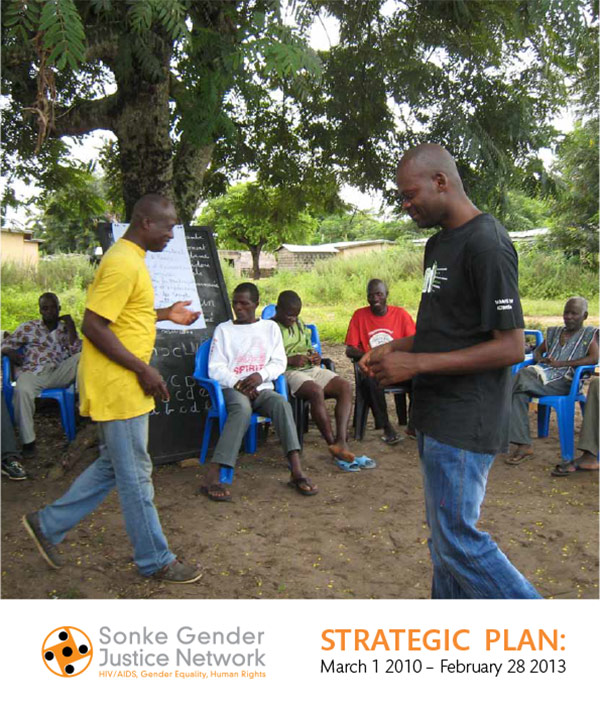MenEngage Africa Strategic Plan 2024 – 2027
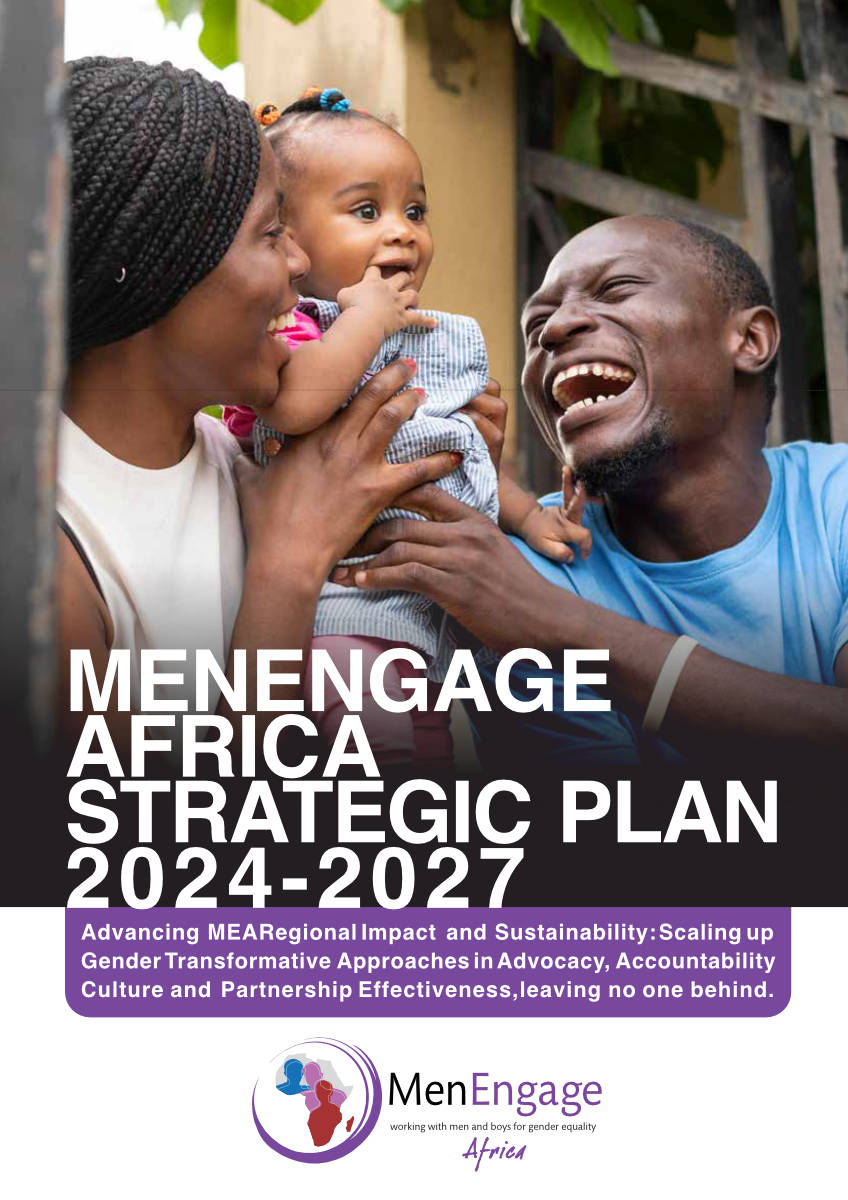
The MenEngage Africa (MEA) Strategic Plan for 2024-2027 presents a comprehensive and visionary roadmap towards the achievement of gender equality and transformative change across the African continent. Grounded in a rigorous analysis of the regional context and fortified by deep-rooted feminist principles, this strategy encompasses three core areas: Advocacy, Accountability, and Partnership. It is designed […]
MenEngage Africa Sexual and Reproductive Health and Rights Strategic Plan 2023–2027

MenEngage Africa (MEA) is a network of women’s rights and sexual and reproductive health and rights (SRHR) activists, people with diverse sexual orientation, gender identity and expression, and sex characteristics (SOGIESC) activists and networks, and civil society organisations that promote social justice and human rights. The vision of the MEA SRHR Strategic Plan is for […]
MenEngage Africa Sexual and Reproductive Health and Rights Strategic Plan 2023–2027
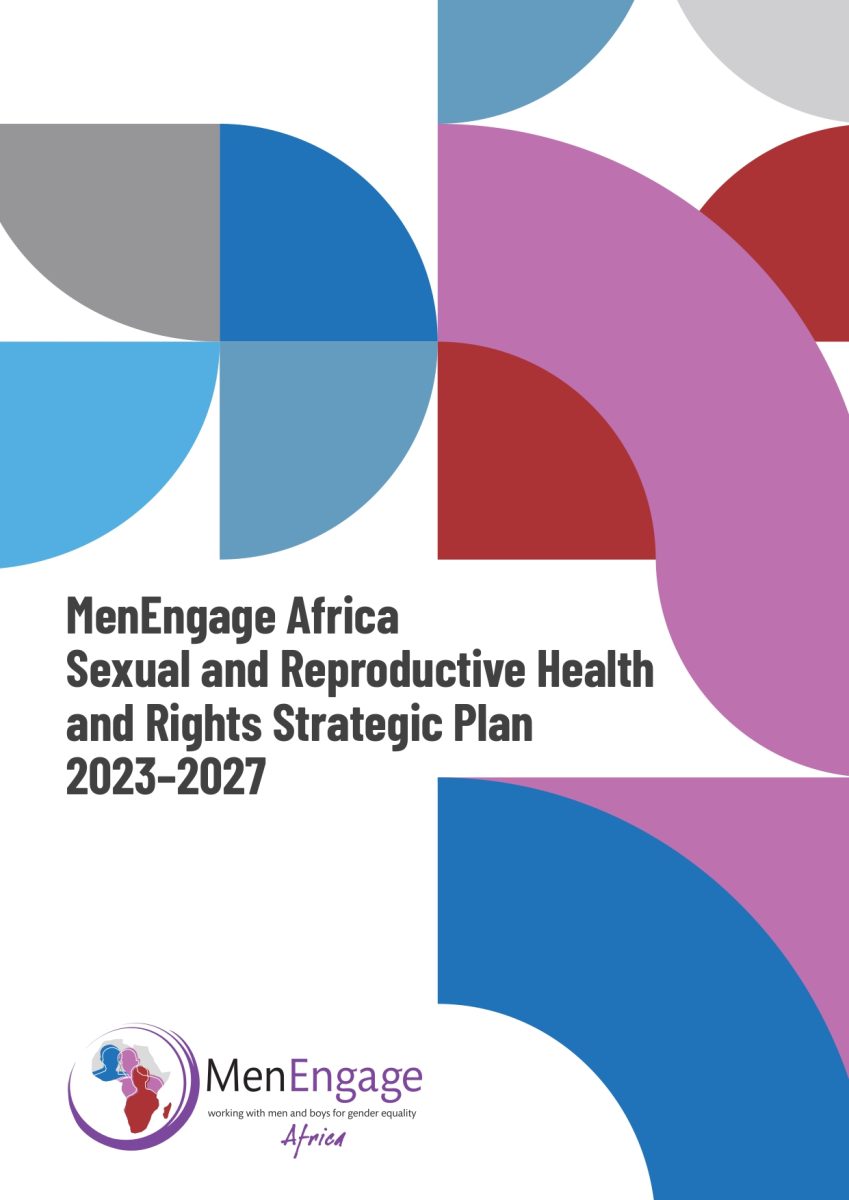
MenEngage Africa (MEA) transforms gender inequality and its negative effects on sexual and reproductive health outcomes by involving men and boys as agents of change. MEA is part of the Global MenEngage Alliance and consists of a network of women’s rights and sexual and reproductive health and rights (SRHR) activists; and people with diverse sexual […]
Sonke Gender Justice Strategic Plan: 2020-2024
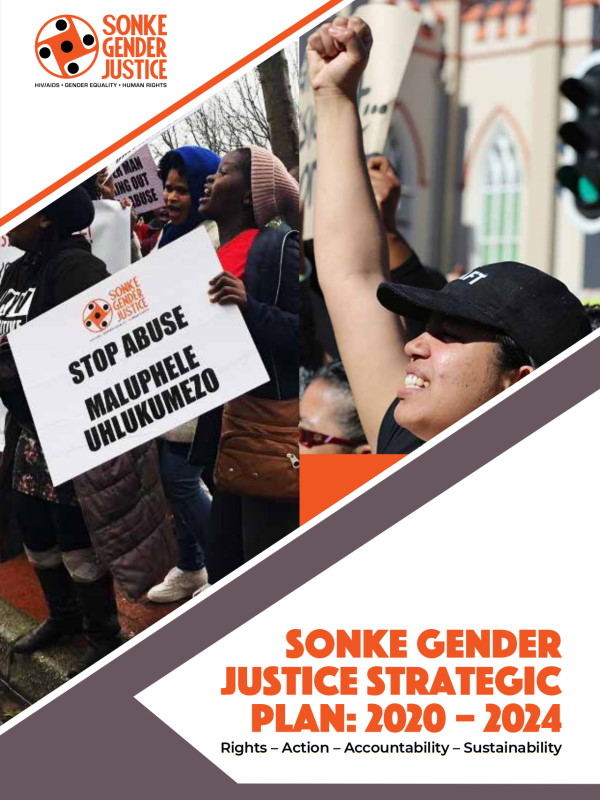
In the past year, Sonke Gender Justice (Sonke) has undertaken a journey of self-reflection. We assessed our performance against our Strategic Plan 2014-2019, during which time we commemorated our 10th year anniversary. We sought to examine our priorities for the next five years. In doing so we reflected on our strengths and challenges that emerged […]
MenEngage Africa Strategic Plan 2019-2023
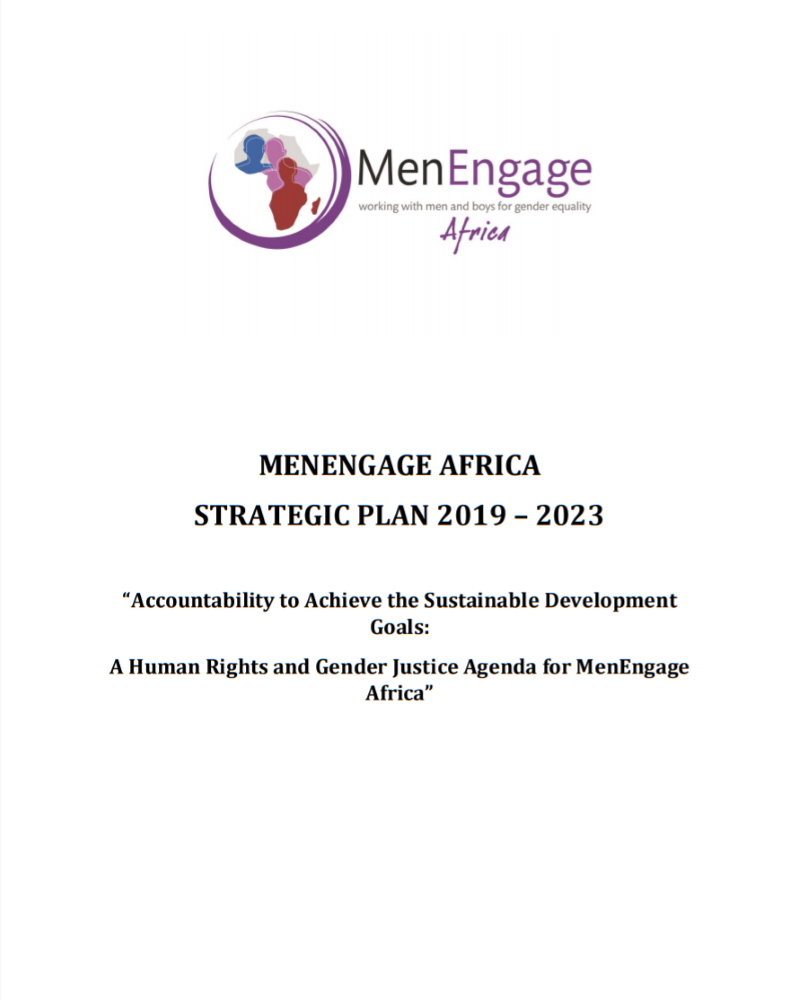
This document details the MenEngage Africa (MEA) Alliance Strategic Plan for the period 2019-2023 and describes its priorities, goals, objectives and aspired results. The plan is informed by the current discourse, knowledge and understanding from the men and masculinities and women’s rights fields as well as the lessons and knowledge that emerged from the MEA […]
Sonke Gender Justice Strategic Plan – Executive Summary
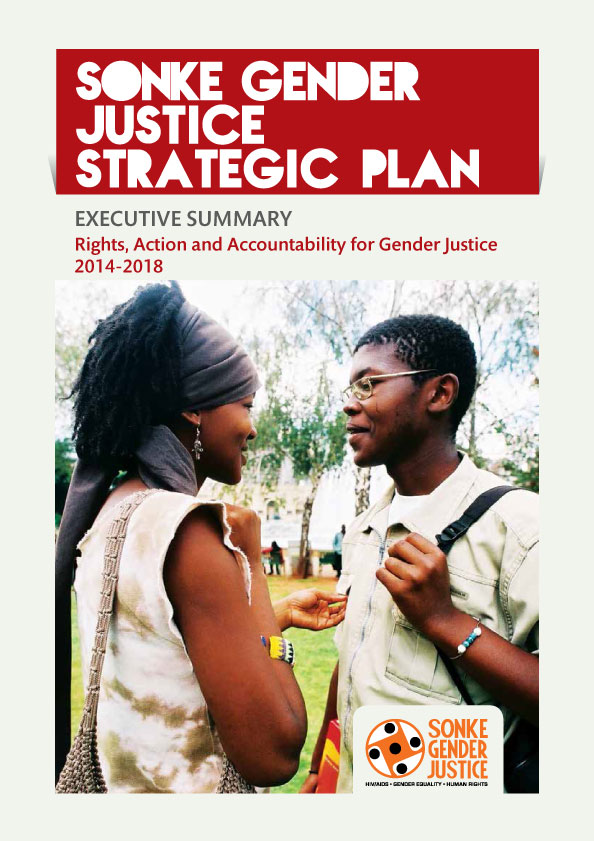
The 2014-2018 strategic plan sets out how Sonke Gender Justice will build on past successes, expanding and deepening our reach to promote gender equality across Africa. Over the next five years, we aim to narrow the gap between transformation in theory and its practical implementation in communities. Sonke has expanded rapidly, establishing itself as an […]
Sonke Gender Justice Strategic Plan
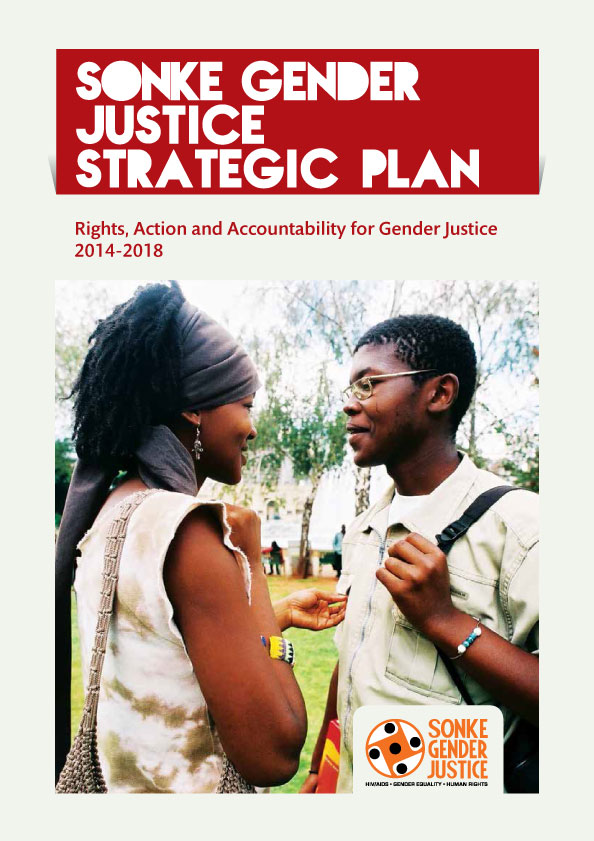
The 2014-2018 strategic plan sets out how Sonke Gender Justice will build on past successes, expanding and deepening our reach to promote gender equality across Africa. Over the next five years, we aim to narrow the gap between transformation in theory and its practical implementation in communities. Sonke has expanded rapidly, establishing itself as an […]
Sonke Gender Justice Strategic Plan
